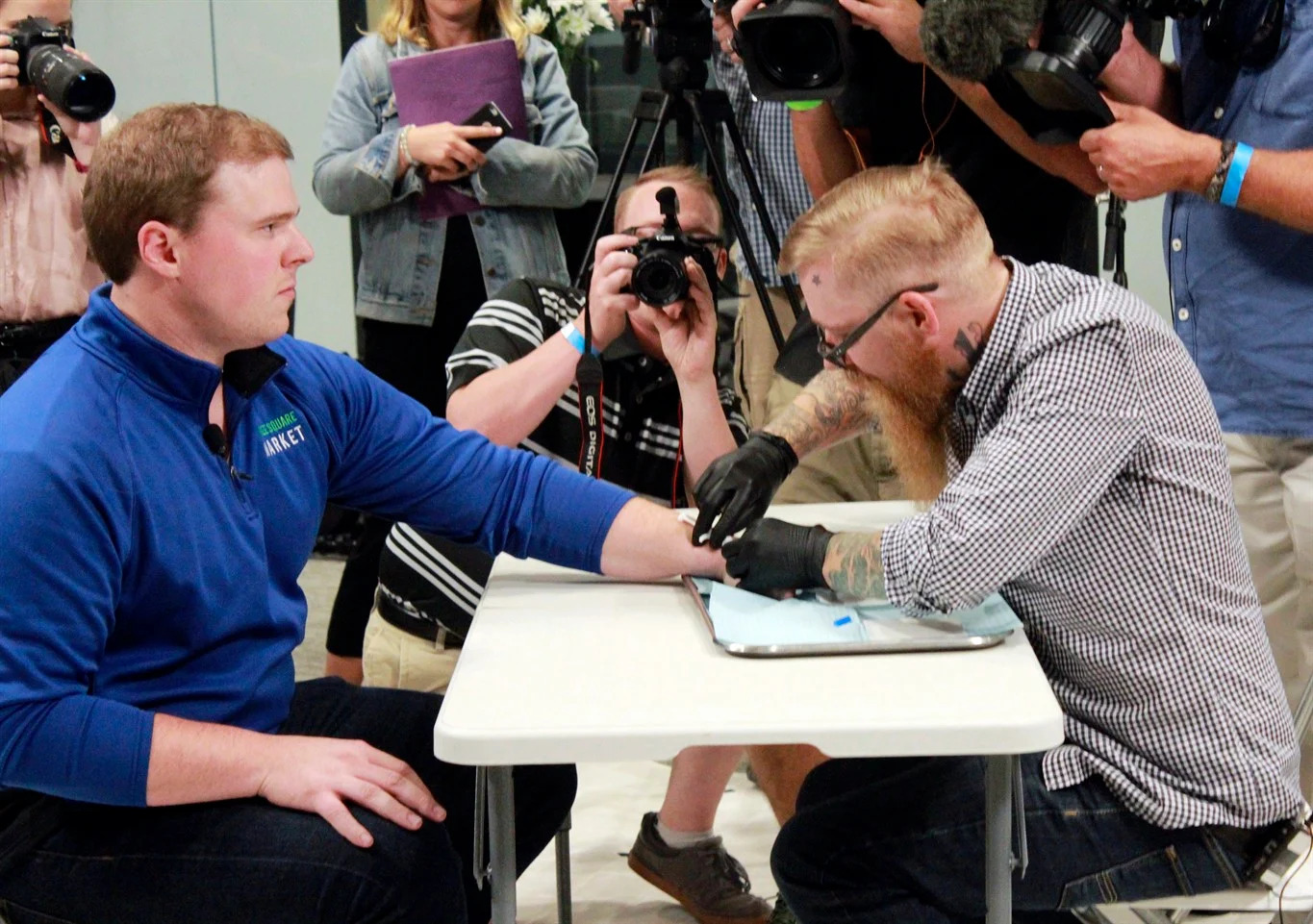for support
(888)123-4567
The balance between access, data, and privacy is a subject of contention. It was close to 13 years ago, where clubbers in Spain could opt for RFID implants to skip queues, incorporating one of the earliest e-wallets that doubled as a badge of honour. Where we are used to deleting cookies on our browsers, having an implant isn’t something as trivial. Even procedures had to be in place to ensure that the club goers who went for the procedure were sober before it was carried out.
Fast forward to July this year, and we see on the news that a Wisconsin based technology company, Three Square Market had started to implement RFID implanted chips for their employees. According to the report at the time, 50 out of 80 employees opted for it. Those who had the chip implanted could swipe for access into the office building, as well as pay for food at the company cafeteria with a swipe of their hand.

Physically, the RFID chips were just 1.2 millimetres wide and 12 millimetres long, not changing much in outlook from 2004 till 2017. In the latter case of Three Square Market, those that were ready to go onboard had mentioned that though this form of identity management was “new”, they predicted that eventually, the perception of society would ease it from an intrusive novelty to daily normalcy.
In this case, we see a direct relation where technology is bettering our lives. Right now with advancements in mobile technology, we are spoiled for choice as the sharing economy has helped give traditional offline businesses an online presence and facelift. We can now find and procure almost all goods and services from our phone, and this newfound instant gratification and convenience leaves us plugged into our devices more than ever.
Being constantly plugged in works both ways. Us having access to goods and services 24/7 means that the same companies have access to our data. An article from Forbes in 2012 reported how Target had figured out a teenage girl was pregnant before her father did. Seeing how corporations are able to piece together information to expand a digital footprint that could border on inconvenience, to a breach of privacy is one of the drawbacks that we need to be aware of.

The digital footprints that we leave behind aren’t always cleanly erased and buried as we might think them to be. Old accounts, different passwords, and multiple platforms give a trail of breadcrumbs for corporations to monetise, and for hackers to exploit. Why are there reservations when we look at having a chip implanted in us, compared to our mobile devices which we are glued to perpetually when both can give us similar functionalities?
Data is the new commodity, and in light of its intangibility, we do not see or feel the implications of what we give up to have what we have. The consumer becomes the product by just being on a platform or service, often unknowingly being implicit by skimming through and clicking “next” on the end user license agreements. An article on The Guardian revealed a detailed 800-page report of the user of a dating app, shows just how much of us as individuals is up for the highest bidder, and the amount of information corporations can extrapolate from the interactions we have with others online.
In terms of access and security, how far should we go? And to what extent do we look at the responsibility shared from both the consumer and corporate angle? With the right laws and regulations in check, the way corporations manage our data can be done so ethically. Corporations such as Apple have been stringent and taking to the forefront a decisive stance on helping maintain customer privacy and data.

And we have been seeing corporations taking the issue of user information and login seriously through the evolution of the password. Where a higher bar of entry is introduced, moving from longer passwords, to 2-step verifications, to more stringent KYC checks. All active steps and effective measures on the user end.
Companies in the future will have to always be vigilant, in employing a combination of the ethical use of information, where no sensitive information is stored to avoid data abuse from the company or external sources. The continual improvement of robust end-to-end encryptions that prompt for verification renewal anytime discrepancies in logins and behaviour surface should be enforced to keep everyone safe. How we treat and manage sensitive data will be key considerations both legally and socially as we move to an ever-connected future.
What do you think we should do to give you better piece of mind as security measures become automated and we head to a keyless society?
Do check out our weekly GTRIIP blog post updates, as we explore the possibilities of keyless technology, new advancements in our workplace and share our views and insights, and opinions on a variety of topics. Leave a comment in the comments section below, and let us get a conversation going!